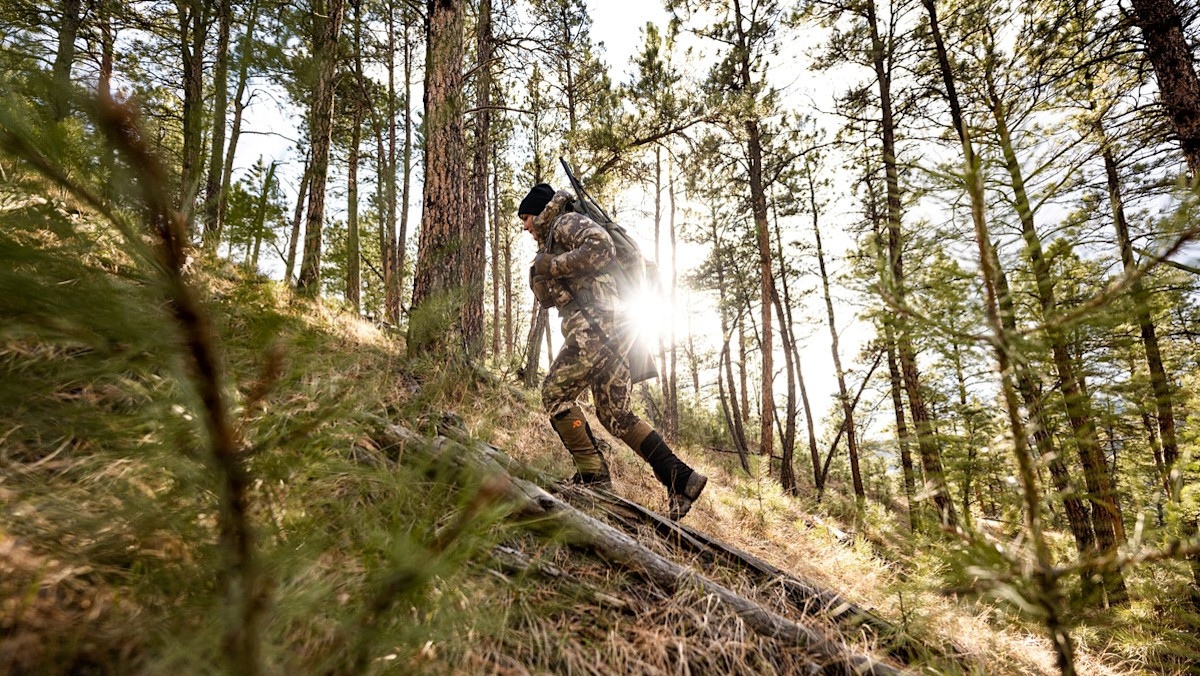
The question on gun blogs and internet forums is usually posed like this: “The world is ending and you only have enough room for one gun in your bug-out bag. Which would you select?” The MeatEater edition of this question is a little different: “If hunters (for some godforsaken reason) were limited to a single firearm, which one would you pick?”
In my humble and correct opinion, there is only one good answer to this question. But before we get to that, let’s think carefully about the criteria we should use to make our choice.
The Criteria
First and foremost, this firearm should allow you to participate in as many hunting seasons as possible. That single firearm has to somehow get you through fallbig game, winterwaterfowl, springturkey, andsmall gameseasons. Some hunters specialize on a single species, but you still want to keep your options open if you want to expand your repertoire down the road.
Second, as with ourCaliber Battlecriteria, the firearm should be chambered in a caliber that is easy to find and inexpensive to purchase. If this is the only gun you own, you want to make sure you can afford to practice at the range and use it in the field.
On a related note, this firearm should also be relatively pleasant to shoot. You’ll want to become as proficient with this firearm as possible, and that will only happen with a significant amount of practice. A shoulder-breaker will get old real quick.
Finally, your one and only gun must be reliable andeasy to maintain. You’ll be using this firearm all the time, so wear and tear is inevitable. When the stock cracks or an extractor breaks or a spring wears out, you want to be able to swap out parts without sending the gun to gunsmith jail for days or weeks.
The Choice
If you scrolled down here from the intro and skipped “The Criteria” section, shame on you. You’re what’s wrong with America.
Just kidding. (Not really).
Without further ado, here’s my pick: a pump-action 12-gauge shotgun. I’m not picky about brand or model (even a cheapo pump gun can get the job done), but I do think it has to be a pump, and I think 12 gauge is the best choice.
The Explanation
A pump-action 12-gauge could be the most versatile hunting implement ever devised. It’s great for waterfowl and turkey, obviously, but slugs can do double-duty on pretty much every large game animal in North America. Birdshot can be used on small game (thoughI prefer a .22 LR like any civilized person), and buckshot is great for varmints like coyotes. Plus, shotguns are a solid home defense option, and a sporting clay competition is just about as much fun as you can have at a gun range.
I’d go with a pump-action over a semi-auto for increased reliability and easier maintenance. Modern semi-auto shotguns can be incredibly reliable, but the added moving parts increase the chance of breakage. Pump guns don’t rely on a complex mechanism to operate, and replacement parts for most popular models are readily available.
A 12 gauge offers about25% more capacitythan a 20 gauge (in some cases that advantage rises to nearly 50%), which produces larger spreads for easier hunting. The larger gauge also offers about 20% more power at the muzzle with heavier slugs traveling slightly faster than its smaller counterpart.
Recoil for a 12 is definitely stiffer than a 20, but you’ll have to make a few compromises if you’re trying to pick One Gun to Rule Them All. I don’t think the recoil on a 12 gauge is enough to disqualify it, especially if you’re using a standard-weight pump gun (about seven pounds). Larger gauges offer more power and shot capacity, but I don’t think the added recoil is worth it.
Limited range is the biggest drawback of a 12 gauge shotgun. If you hunt in open areas and you don’t go after waterfowl or turkey, a 6.5mm or .30-caliber rifle might be a better option.
But rifled shotgun barrels and sabot slugs can extend your range beyond what you might assume. (We’ll allow a barrel swap in this hypothetical scenario.) Add a scope or red dot to that setup and I don’t think it’s unreasonable to take down a whitetail or other medium-sized gameout to 200 yards. That depends largely on accuracy, of course, and your specific shotgun might not print groups small enough at that distance. Still, even a range of 100 yards will give you enough distance for a huge majority of hunting scenarios, even on open landscapes.
Last Shot
Other firearms offer greater advantages in certain hunting scenarios. Depending on the caliber, rifles offer better range, accuracy, and power. Rimfire rifles are better for small game (no one likes picking BB’s from a squirrel ham), and handguns are more packable. But if you’re looking for something that can do it all–and do most of it well–I think you have to go with a 12-gauge shotgun.
Shop
Sign In or Create a Free Account
Related
Firearms
If You Can Only Pick One Big Game Hunting Cartridge, Pick This One


